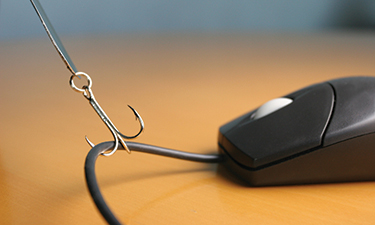 This past summer, everyone who had a paper accepted for the Leisure Research Symposium at the NRPA Congress in Houston received an email from a publication company. The email was addressed to them personally, it mentioned the Leisure Research Symposium and the specific title of the paper that person was scheduled to present, and it extended an invitation to submit that article plus other unpublished work for review and publication. What the email did not state was that this was a phishing scam.
This past summer, everyone who had a paper accepted for the Leisure Research Symposium at the NRPA Congress in Houston received an email from a publication company. The email was addressed to them personally, it mentioned the Leisure Research Symposium and the specific title of the paper that person was scheduled to present, and it extended an invitation to submit that article plus other unpublished work for review and publication. What the email did not state was that this was a phishing scam.
Similar emails have been sent to thousands of presenters from conferences throughout the world on subjects ranging from psychology and social work to business and law. The scammers extract the recipients’ names and email addresses from conference proceedings along with the titles of papers they are presenting and use that information to send personalized invitations to submit those manuscripts for publication. Although the message indicates manuscripts will undergo a blind peer review, papers are accepted without substantive review or feedback, and ultimately the authors are asked to pay a sizable publication fee before the manuscript goes to press. These periodicals have websites and legitimate ISBN numbers but are not actively published; the manuscripts disappear and the scam operators pocket any fees the authors remitted.
A similar phishing operation entails recent Ph.D. graduates. As with the journal scam, the graduates receive a personalized email that includes their name and the title of their dissertation with an offer to publish their work as a printed book. These emails come from the “acquisitions editor” of a publication company. In reality, this is little more than a print-on-demand service; there is no upfront publication fee for the author and the books are indeed for sale, but the publisher does not market the books and the service is similar to an online copy shop. Books published in this fashion do not carry the status of books published through selective editorial review.
The most obvious risk in these phishing operations comes when an author pays to publish a manuscript. Since these companies are typically housed overseas, there is little recourse for recovering a publication fee if your article is not published. But there are other risks as well. Even if your manuscript does get published, it might not be accessible to other scholars. These scam operators do not advertise or promote their journals like reputable publishers would do. In addition, as the names of these bogus journals and publishing companies become known, there is increasing danger in listing those items on your vitae. Even though you submitted a manuscript in good faith, material published through disreputable publishers might negatively impact your promotion and tenure review. But perhaps most importantly, the copyright status of manuscripts submitted through these phishing scams can become problematic. Most publishing companies require you to sign a copyright agreement that gives the publisher the sole right to publish that article or book. If you have already submitted that article to a bogus journal, your right to submit it again to a legitimate journal could be compromised.
So what should you do? As with other offers, beware of anything that seems too good to be true, especially if it comes in an unsolicited email. When you receive an offer to publish your manuscript from a person, journal or company with whom you are not familiar, check up on them. Most of the reputable journals have a healthy manuscript flow and do not solicit submissions. Poor grammar, vague promises and incomplete information are red flags that should caution you to proceed carefully.
It is always good strategy to review articles from previous issues of any journal before submitting your own work; this lets you integrate relevant articles and discussions that this journal has already published. If you cannot find recent issues of the journal, either in the library or online, think twice about whether that journal will be a good place for your manuscript. And if you do find issues of a journal that first came to your attention through an email invitation, scrutinize the articles it has published. Do the articles have a theme that draws them together with scholarly integrity? Do they present strong research designs and discussion? Phishing journals are often identifiable as an eclectic mix of articles of poor quality.
And finally, rely on existing sources to assess the integrity of a journal you are considering. Journals that are indexed in an online database such as Academic Search Complete have met a series of criteria including the quality and transparency of the editorial policy and regular publication of new issues, and typically are reputable journals (though strong periodicals with smaller circulation might not be indexed in these databases). Ulrich’s Periodical Directory and Campbell’s Directory contain information about publishers’ addresses, acceptance rates and whether journals are refereed/peer reviewed. The Journal Citation Reports can tell you how often articles from a specific journal are cited in other articles. A university librarian can help you assess the strength and integrity of a journal with which you are unfamiliar.
Getting your work published is always a source of pride. With some healthy skepticism and a bit of research, you can select the best outlets for your work without falling victim to publication phishing scams like these.
Resource Against Publishing Scams
As you look into the reputability of a journal you are considering, this source:
Diane M. Samdahl, Ph.D., is a Professor in the Recreation and Leisure Studies Program at the University of Georgia, Athens.

